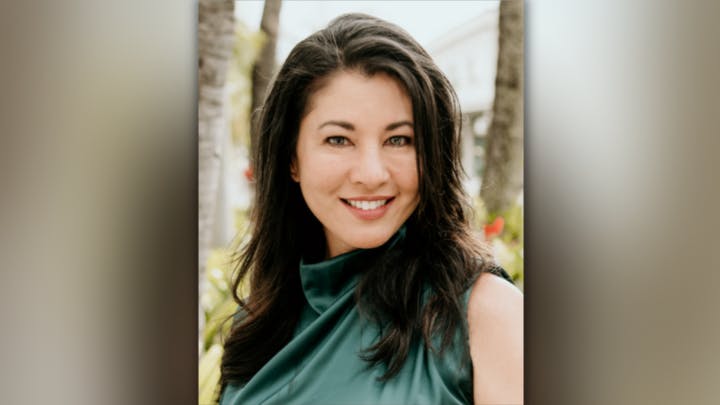Contributed by: Josie Howard
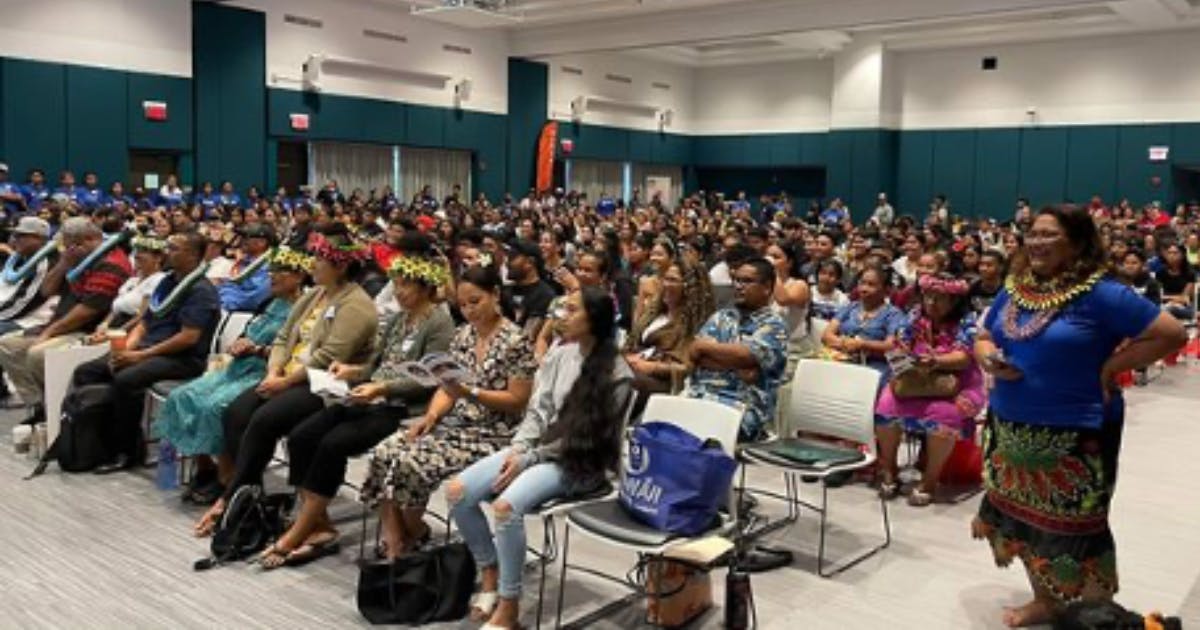
Photo courtesy We Are Oceania
In our latest issue of Taking on Tomorrow, we asked Fellows to answer questions about the ways they practice leadership in their lives and with the nonprofit organizations they lead. Here's what Josie Howard, executive director of We Are Oceania, had to share:
How do you practice leadership as an activity?
Leadership is taking action for what needs to be done. I learned this from my grandparents and parents. As a little girl, there was a chant they always sang to me that goes, “onone penepene o auta pii. Si firh fetal si fir fetal si werewere kanarh,” which means, “lay there, sea cucumber, you can only eat the sand around you, we move around and about to find food.” The value this chant shares is that each individual is in charge of making changes for their survival; they can’t just sit around and expect things to change or expect their surroundings to bring them food.
Leadership is also about making changes for human survival. This first requires recognizing the challenges and barriers to achieving self-sufficiency that individuals and families face. It then allows everyone to lead by requiring them to take action for their own survival, which also contributes to the survival of the family and the vibrancy health, resiliency, and prosperity of the community.
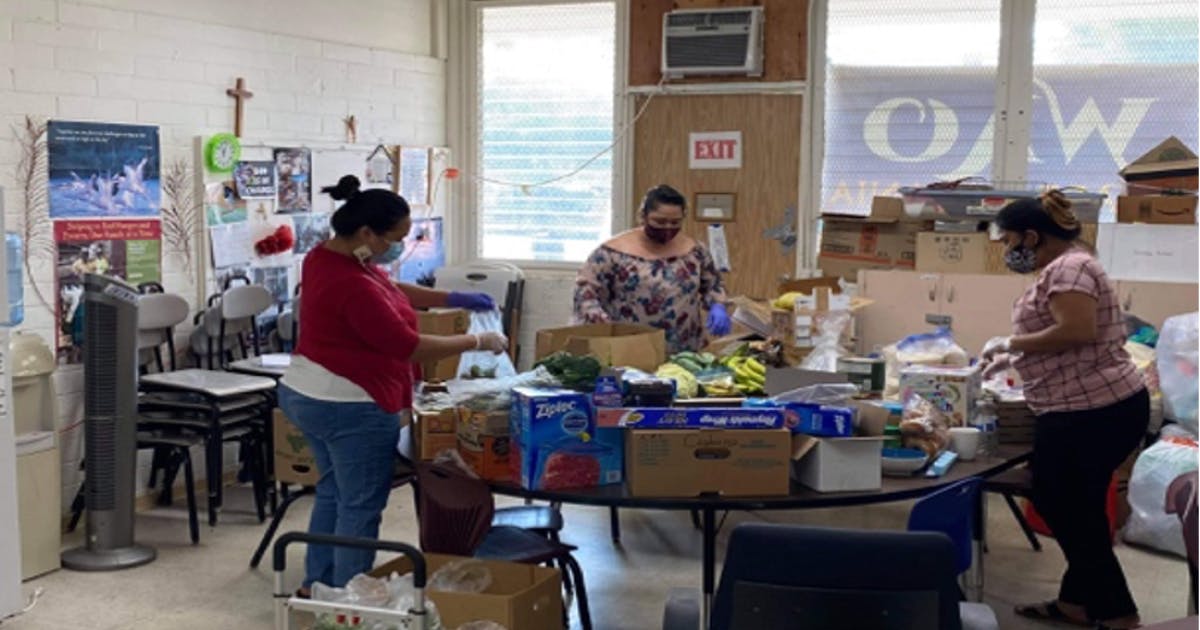
Photo courtesy We Are Oceania
“It’s meaningful and rewarding for a staff member to take the lead in their own community. They get to influence how we approach or show up at outreach activities while also serving as an ambassador of their culture for other staff members who may not be from that community.”
What are important challenges We Are Oceania aims to address?
Eliminating discrimination against the Micronesian community: We Are Oceania (WAO) serves our community, especially our youth, through advocacy, community organizing, and resources that empower them to navigate and rise above the impacts of the disempowering narrative they encounter in their neighborhoods, churches, schools, and workplaces. We also provide trainings to help people understand the Micronesian community better. We take pride in sharing stories of our history, what has brought us to America, and our many contributions to the State of Hawai‘i. We believe in building relationships as a solution to strengthen the entire Hawai‘i community.
Reduce health disparities: Colonization and its imposed lifestyles, wars, and strategic relationships have caused a huge migration of native people from the Northern Pacific Ocean to the United States. Through acculturation and education, WAO is addressing policy barriers to achieving health equity for Micronesian people while also taking care of the individuals, families, and communities that are impacted by these disparities.
Increase opportunities for higher education and employment: These are necessary for building capacity in our Micronesian community. WAO hosts the Micronesian Youth Summit and has also built key partnerships with other agencies to provide new opportunities for the youth and young adults we serve.
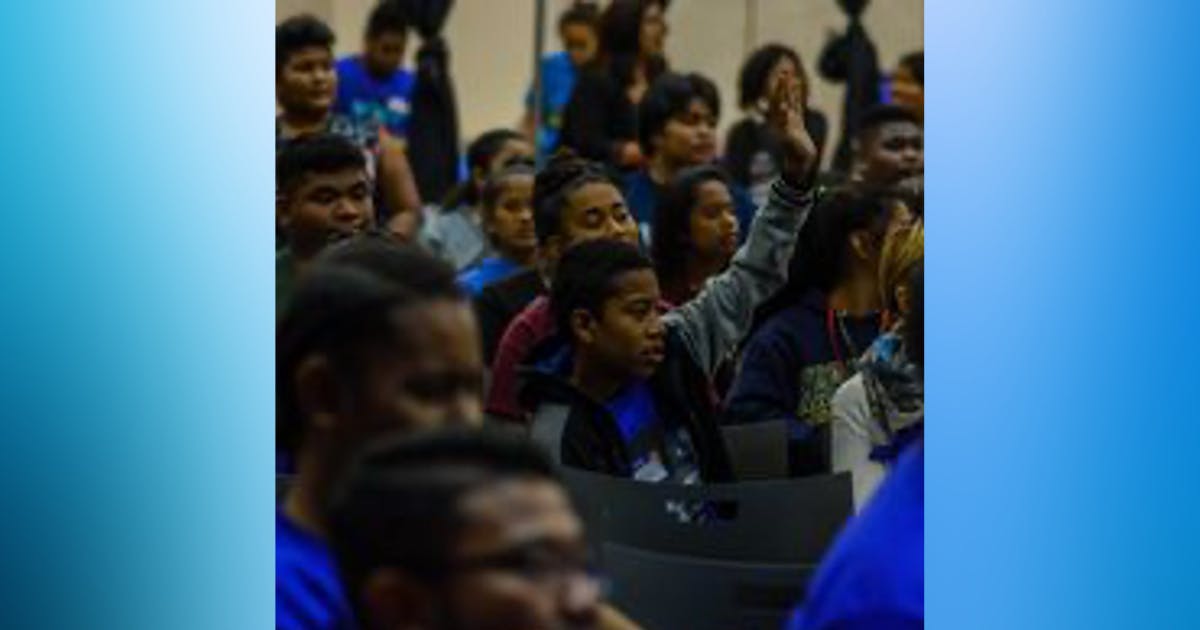
Photo courtesy We Are Oceania
What are some examples of leadership that are happening at We Are Oceania?
I recognize that every staff member at WAO has unique strengths, relationships, and roles in their respective communities. I employ those strengths as motivators for keeping them engaged. It’s meaningful and rewarding for a staff member to take the lead in their own community. They get to influence how we approach or show up at outreach activities while also serving as an ambassador of their culture for other staff members who may not be from that community.
What are some risks We Are Oceania has taken to practice leadership?
At the beginning of COVID, we needed to protect our community from the deadly virus. Even before we had secured resources and funding, we took a risk and moved into action. We looked for ways to care for our community, like making direct asks for donations of essential goods that were identified by the community, recruiting volunteers to deliver the goods, and securing PPE to protect individuals and families that were in quarantine or isolation. We sought partnerships with some of the major organizations that had the resources to serve the community like The Queen‘s Medical Center, Aloha United Way, Chef Hui, Kalihi-Palama Health Center, Kōkua Kalihi Valley, the Department of Health, and many others. We also built a relationship with the Department of Health to ensure the CARES Call Center had the language capacity to support Pacific Islander communities that were disproportionately impacted by COVID.
An ongoing initiative is changing the narrative that Micronesians are a burden to or a deficit in the community to showing that we are assets and strengths to Hawai‘i. WAO’s approach strategically addresses this by using our cultural lens of abundance, strong foundations, and building community—this is even represented in our name: WE Are Oceania. While we are making good progress on changing this narrative, it can be risky because it may not be aligned with the terms of grants or the state’s framing of issues in Hawai‘i. I value the respectful and harmonious relationships that WAO has built over time; however, this is work that might create conflicts within those relationships.
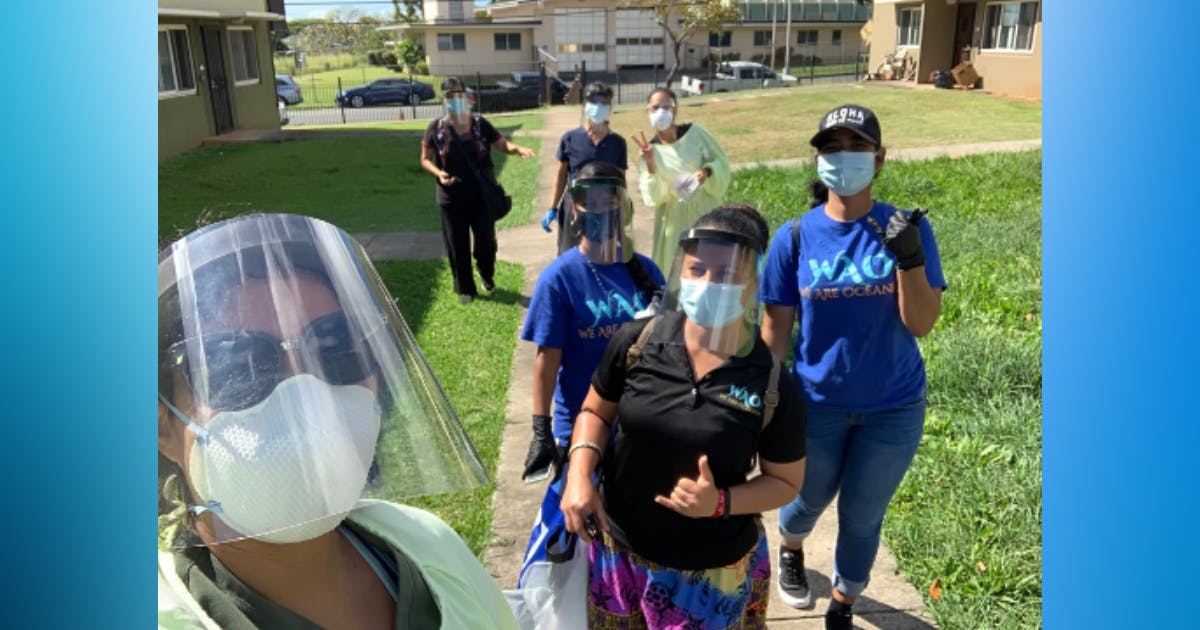
Photo courtesy We Are Oceania
Janice Ikeda, Omidyar Fellow and executive director of Vibrant Hawai‘i, explains why she thinks leadership looks a lot like following and how their organization engages potential team members in a leadership practice from the moment they apply.
